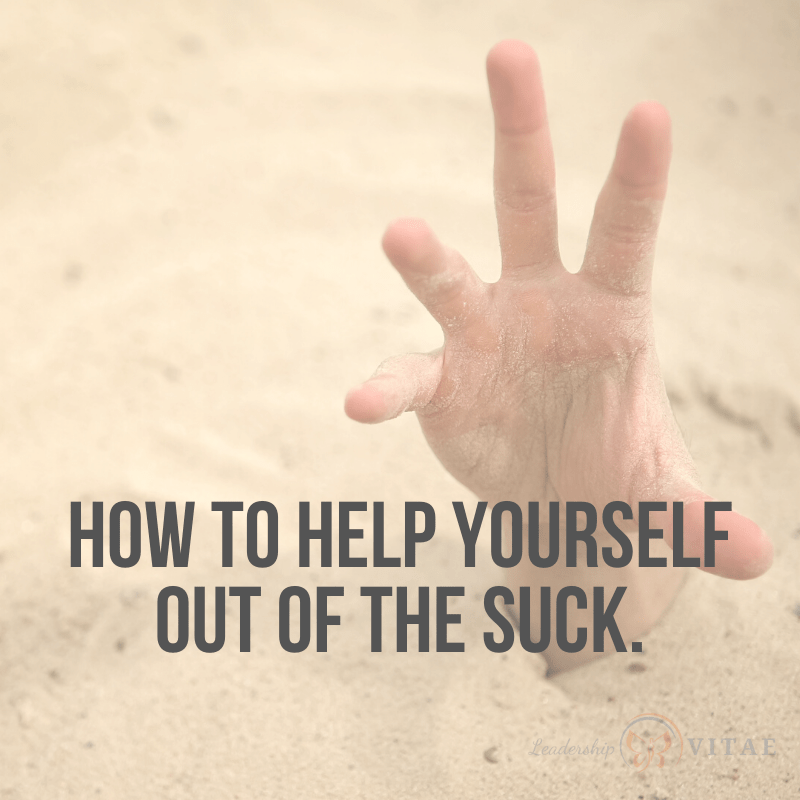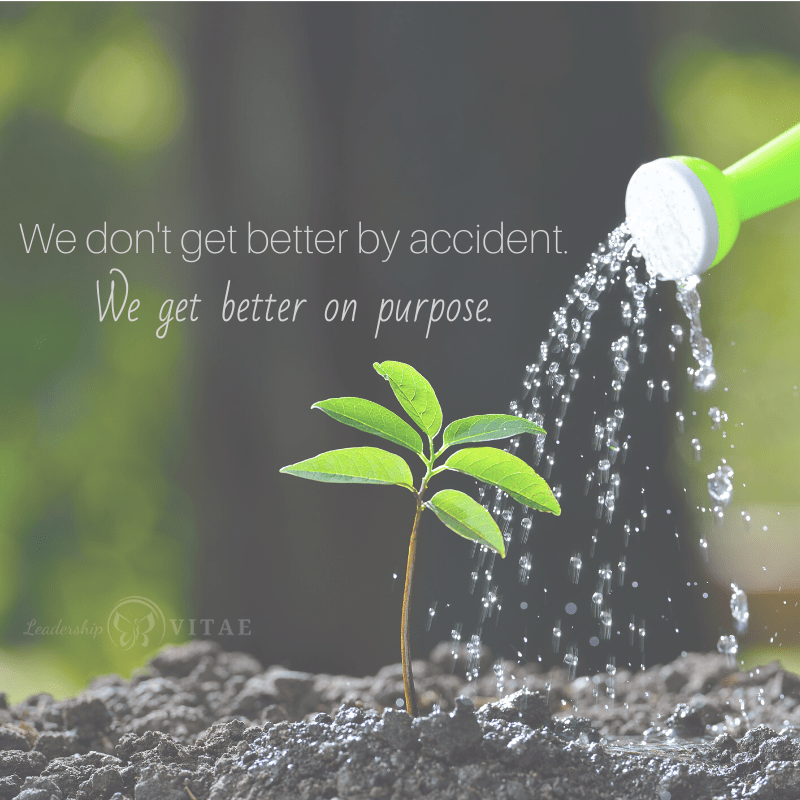
Recently, I was rereading some of my older posts and realized there were a few that pertained to situations I am currently experiencing.
It was almost as if I was reading them for the first time. Admittedly, I wrote them years ago, but it was an “aha” moment. Solid advice right when I needed it.
Hmmm…but I wrote it. You’d think I’d know what to do in a situation if I had the ability to help others through something similar, no matter how long ago.
It’s not that surprising. It’s so much easier to advise from afar. When we are on the other side of a challenge or helping someone else navigate it.
It is much more difficult to guide ourselves when we are the ones living the challenge. When we are caught up in the suck.
There are three steps we can take to help us get back out. To help pull us out of the moment and help ourselves take even one step forward towards a solution.
Put the moment in context
In the middle of the suck, it’s hard to see the benefit and be objective. It can be difficult to step back from the moment because it’s happening to us RIGHT NOW.
It’s much easier to internalize and feel. Putting those feelings aside, even for a moment, may be more than our current level of emotional intelligence allows. We may be caught in fight/flight/freeze and feel unable to do more than react.
Take a moment to breathe. Most likely, you are not being chased by a saber-toothed tiger (at least I hope not), even though your brain and body’s reaction may feel like it.
Just pause. Stop thinking for one moment about what’s happening on the surface. Reflect about how this interaction or event fits into the larger context of a relationship, your role, your career, or your life.
We might need help with this one.
I once received feedback that just burned my soul. I could not reconcile what I heard with what I believed about myself. In my mind, if I allowed myself to believe what I was hearing, it would mean I wasn’t good, capable, and valued.
A trusted confidant sat me down and asked me about my prior performance. Over the course of many years, it had been positive. So he asked me, as long as you get continued positive performance from here on out, what will this say a few years from now?
Sure enough, it’s now a small but important blip (one that gave lessons in humility, how to receive unexpected feedback, empathy and more!) in many years of a career. In the moment, it was difficult to remember how to put it in context.
If you’re struggling to step back, ask a friend or mentor to help you see this moment in the larger framing or your life or career.
Seek out the good
Generally, no matter how painful, frustrating, or problematic an experience or situation is, there’s an opportunity to find some good in it. Some sort of learning, growth, or perspective that can be gained.
Sometimes it takes a hot minute. That same soul-burning feedback? I was having a really hard time finding the good in that.
It took me nine months.
Once I found it though, I was able to put other feedback and experience I had into perspective. It was a massive “a ha” moment where I was able to understand the role I played in two professional relationships that followed a similar pattern.
It was a combination of conversations and a long drive that helped me connect the dots, but if I had not been willing to see the good in a bad experience (or two), I couldn’t have created the connection.
The “good” could be anything. It could be awareness of a blind spot, negative self-talk, behavior patterns, an opportunity to learn something new or try something different.
For example, getting laid off. This is one that in the moment is difficult to find good in. Particularly if the immediate issue is being able to take care of necessities like food and shelter.
I was laid off during the big tech bust years ago. There was no good in the moment, just a scramble to find another job at a time where there were few to be had.
Once I had a new job, I was able to look back and decide what I wanted to take from the experience. It included empathy for anyone looking for work or who has been through a layoff, awareness of the importance for a financial cushion (which took years to build), and LOTS of interview experience.
NOTE: This started out with “generally” for a reason. In most of our personal and professional moments, finding the good can help. Death is a significant exception to this, as I would never suggest that there’s good to be found in that level of loss.
Ride it out
If you’re reading this, you’ve successfully navigated through each of your hardest days, moments, and experiences to get to this point.
You will again.
Reflect back on other challenges. In the moment they may be frustrating, uncomfortable, or feel miserable. They’ve also gotten you here and fueled your growth.
It may be a bumpy ride right now, but this wave will pass. Ride it out, knowing that you’ll get to the other side…even if you’re feeling a little seasick in the meantime.

Years after that “awful” conversation, I’d like to think I’d handle it differently.
There was so much learning, the most important being empathy for anyone else that has to be on the receiving end of a difficult conversation. Before that experience, I could try to be sensitive, but didn’t know how it felt. Now I do. As a leader and a fellow human being, I wouldn’t trade that awareness.
There have been lessons in all the challenging days, frustrating conversations, and boiling mad moments…and each of them has passed. It may have taken time to step back, understand the context, and find the good, but each time it gets easier.
Reflect. Practice. Make mistakes. Learn. Try again.
As with any growth, it’s important to be aware and deliberate. We don’t get better by accident. We get better on purpose.








